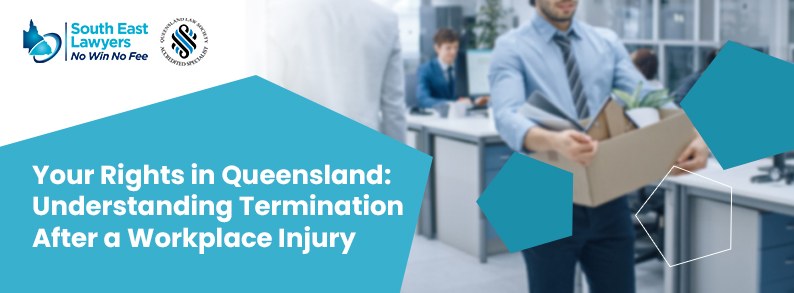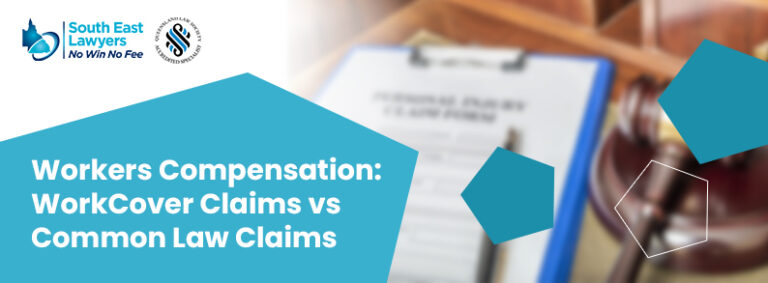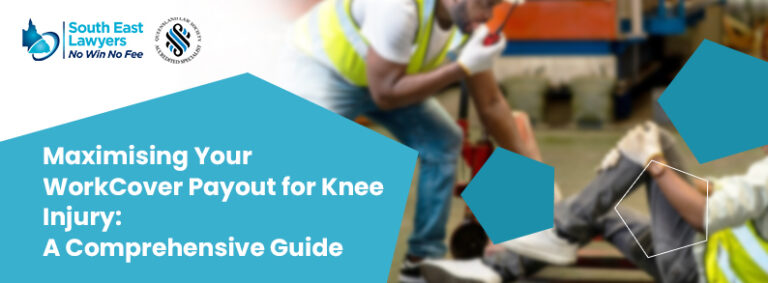Suffering a workplace injury can be a life-altering experience, leading to uncertainty about your job security and rights. In Queensland, the law protects injured employees from unfair dismissal related to their injury. And in this article, we want to help you navigate these protections and understand your rights if you face termination after a workplace injury.
What is WorkCover Queensland?
WorkCover Queensland provides insurance coverage for workers who have been injured on the job, ensuring they receive medical care and wage replacement benefits. Importantly, being on WorkCover also offers protections against unjust termination due to your injury.
Can You Be Legally Terminated While Injured?
Yes, but the law sets strict guidelines.
Employers can terminate an injured employee for legitimate business reasons unrelated to the injury itself, such as redundancy or misconduct. However, it is illegal to terminate employment solely because of an injury or a compensation claim, especially within 12 months of the injury occurring.
Legal Framework Surrounding Termination in Queensland
In Queensland, the legal landscape governing the termination of employment, especially for injured workers, is framed by both state and federal legislation. Understanding these laws can empower you as you navigate your rights and potential actions in the face of termination.
Workers’ Compensation and Rehabilitation Act 2003 (QLD)
This state law is pivotal for injured workers, offering protections and outlining the responsibilities of employers towards employees who have been injured on the job. It emphasises that injured workers cannot be terminated solely because of their injury or claim for compensation within 12 months of the incident.
Fair Work Act 2009 (Cth)
On a federal level, the Fair Work Act provides a broader framework for employment rights and protections across Australia, including unfair dismissal, redundancy, and workplace rights. It ensures that terminations are conducted fairly and for valid reasons, offering a pathway for recourse in cases of unjust termination.
Anti-Discrimination Act 1991 (QLD)
This state-specific legislation further protects employees from being terminated on discriminatory grounds, which can include injury or disability resulting from workplace incidents. It underscores the requirement for employers to make reasonable adjustments for employees to perform their jobs.
Understanding these laws is crucial for recognising the protections available to you and the obligations your employer must adhere to. If faced with termination, this legal framework offers various avenues for challenging unfair decisions and seeking justice.
Understanding Your Protections
As an injured worker in Queensland, you are afforded significant protections under the law to ensure that your employment and rights are safeguarded during your recovery period. It’s crucial to understand these protections to advocate effectively for yourself in the workplace.
- Protection from Unfair Dismissal: The Workers’ Compensation and Rehabilitation Act 2003 (QLD) provides a solid foundation, ensuring that you cannot be dismissed solely because of your injury or the fact that you have made a compensation claim. Specifically, for the first 12 months after your injury, your position is protected, meaning your employer cannot terminate your employment for reasons related to your injury.
- Right to Suitable Duties: Upon your return to work, your employer is obligated to, where possible, provide you with suitable duties that accommodate your injury. This means tasks that are safe for you to perform, considering your medical condition and recovery progress. If your usual job isn’t feasible, alternative roles should be considered.
- Obligation for Reasonable Adjustments: Under both state and federal laws, including the Anti-Discrimination Act 1991 (QLD), employers are required to make reasonable adjustments to your work conditions to accommodate your injury. This could involve modifying your workspace, adjusting work hours, or providing assistive devices. The aim is to enable you to perform your job effectively despite your injury.
- Consultation Requirements: Before making any significant decisions that affect your employment status, such as termination or changes to your role, employers must consult with you. This involves discussing the reasons, considering your input, and exploring all possible options to retain your employment.
- Seeking Redress for Unlawful Actions: If you believe your employer has not adhered to these obligations, several avenues are available for seeking redress. This includes lodging complaints with WorkCover Queensland, the Fair Work Commission, or the Queensland Industrial Relations Commission, depending on the nature of your grievance. You can also seek legal advice and support from a professional.
Understanding these protections empowers you to recognize when your rights are being infringed upon and take appropriate action. It’s important to remember that while employers have the right to manage their business, including making tough decisions about employment, they must do so in a manner that respects your legal rights as an injured employee.
When Termination Might Occur
While the law protects injured workers from being terminated solely due to their injury, there are circumstances where termination might still lawfully occur. Understanding these situations can help you prepare and respond appropriately:
- Redundancy: If your employer is restructuring or downsizing, your position may become redundant. This means the job you were doing no longer exists due to changes in the company’s operational requirements. Employers must follow a fair redundancy process, which includes consulting with you, considering redeployment options within the company, and providing redundancy pay where applicable. It’s important to note that redundancy should be genuine and not used as a pretext to terminate employment due to an injury.
- Performance or Misconduct: Employers have the right to terminate employment for reasons related to an employee’s conduct or performance, provided these issues are not related to the injury. For instance, if there are documented cases of misconduct or if an employee fails to meet the performance standards of their role after reasonable support and warnings have been given, termination may be justified. However, employers must ensure that performance assessments are fair and not influenced by the employee’s injury or compensation claim.
- Incapacity: There might be situations where, even after making reasonable adjustments, you’re unable to perform the core duties of your job due to the nature of your injury. Employers are required to explore all reasonable accommodations, including alternative positions or adjusted duties, which would allow you to continue working. If no feasible accommodations can be found, and it is clear that you cannot fulfill the requirements of your role, termination on the grounds of incapacity may be considered. This process must be handled sensitively, with clear communication and documentation, ensuring that all possible options to maintain employment have been thoroughly explored.
In each of these scenarios, the key for employers is to follow a fair and transparent process, providing you with clear communication and an opportunity to discuss your situation. They must also provide you with notice and, where appropriate, severance pay in accordance with your employment contract and the Fair Work Act 2009 (Cth).
For you as an employee, being aware of these potential lawful reasons for termination empowers you to better understand your situation and seek appropriate advice or take action if you believe your termination was not justified.
Have You Been Injured at Work?
Navigating the aftermath of a workplace injury includes understanding your employment rights and being informed is your best defence. In Queensland, the law provides significant protections for injured workers against unfair termination. If you’re facing difficulties with your employer or are unsure about your rights, don’t hesitate to seek professional advice. Remember, you’re not alone, and there are resources and laws in place to support you through this challenging time.
If you’ve recently been injured at work and you need help with making a workers’ compensation claim in Queensland, talk to us today at South East Injury Lawyers. Our workers’ compensation lawyers can help you understand your options, and guide you through the claims process, ensuring you receive the entitlements you deserve. Call us on 1300 446 999 or book a consultation online here.






